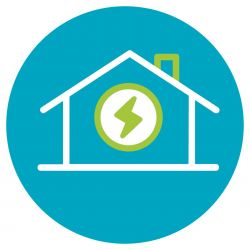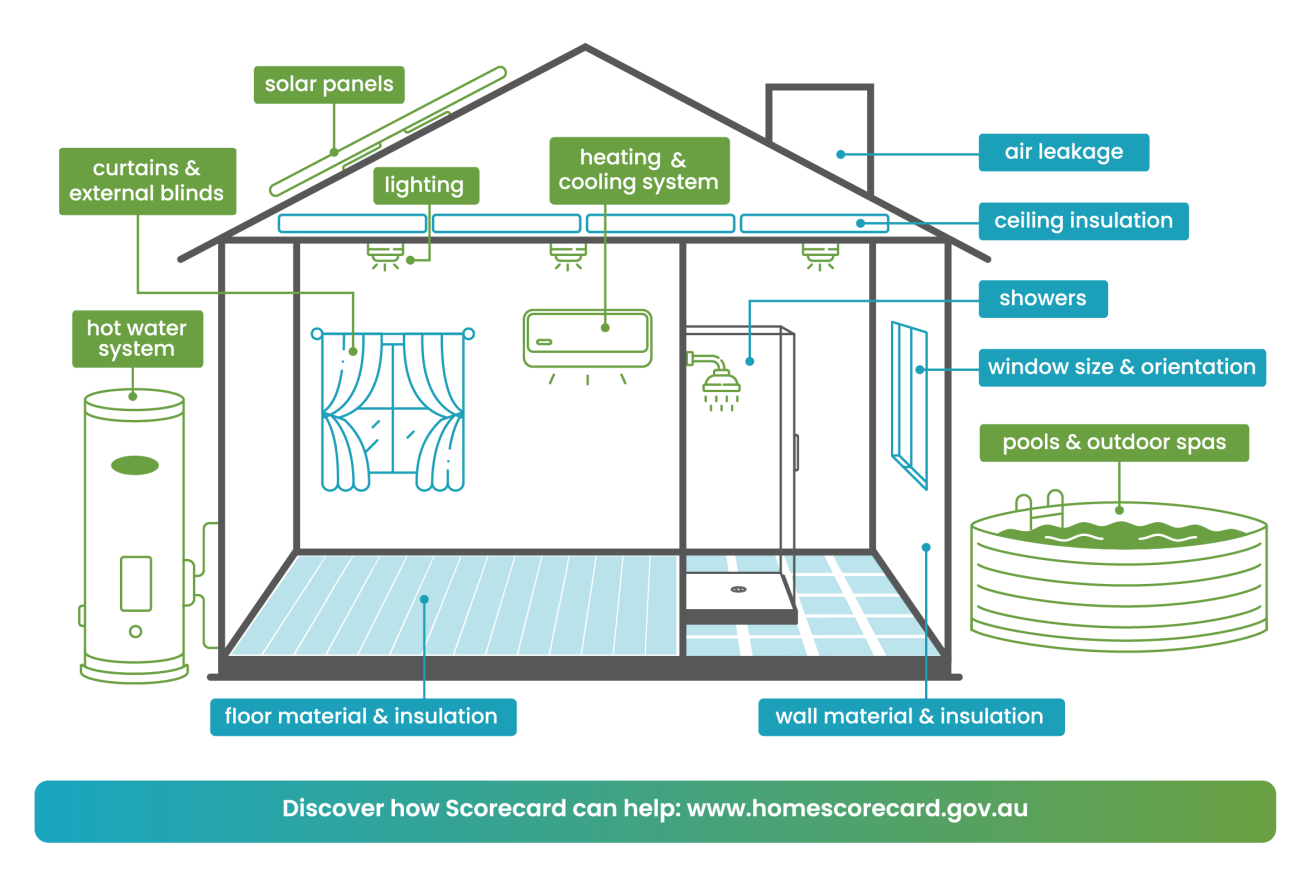On this page:
Scorecard assessors are experts in home energy efficiency and can give you a clear path to make your home all-electric.
You might be thinking of getting off gas and making your home all-electric so that you can:
- reduce your energy bills,
- reduce your greenhouse gas emissions, and
- make your home healthier and more comfortable to live in.
How Scorecard can help
Scorecard assessors develop a plan for making your home all-electric by analysing the energy efficiency of your home's appliances and building shell. This helps understand the whole ecosystem of your home. For example, you might end up with expensive energy bills in summer if you have an efficient air-conditioner but no insulation or draught-proofing.
Scorecard assessors will show you the impact that different upgrades will have on your home. This helps you decide on the best way to make your home all-electric. Your plan will include expert advice about:
- how to improve your building shell,
- what appliances to upgrade and when to upgrade them, and
- what rebates and subsidies are available to you.

Save money by going all-electric
How much money you can save by going all-electric depends on your home and whether or not you have solar panels.
- For a home with solar panels, going all-electric could save you around $1,250 per year.
- For a home without solar panels, going all-electric could save you around $1,020 per year.
- For a home without solar panels, going all-electric and installing solar panels could save you around $2,200 per year.
These figures are estimates and are subject to change depending on your home's energy use. Our Scorecard assessors are able to give you more targeted information.
Source: Victoria’s Gas Substitution Roadmap
How Sarah and Rebecca made their 100-year-old home all-electric
Sarah and Rebecca's home is over 100 years old. After living in the home for 13 years, they were tired of the house being freezing in winter and expensive to heat. They decided to get a Scorecard assessment to learn how to improve their home.
The Scorecard rating for their home was 2.5 stars, below the 3 star average for Australian homes. They used this as a baseline and acted on the Scorecard assessor's advice for upgrading their home. They insulated their floors and ceiling and covered up all gaps and cracks. They also installed solar panels, an electric stovetop, a hot water heat pump and reverse-cycle heating and cooling.
After the upgrades, the Scorecard assessor reassessed the house and gave it a 10-star rating, the best possible rating. Their home is now cheaper to run and more comfortable to live in. Sarah said 'it's a different house to live in now. It's cosy.' Rebecca added 'our electricity bill is already much, much lower than it ever was.' Sarah and Rebecca were so happy with their 10-star outcome that they printed the Scorecard certificate and put it on the front of their house!
Sarah and Rebecca's advice to others is 'it's worth doing what you can.'
Important things to consider
There are some things to consider before you make your home all-electric, including:
- the upfront costs,
- the lifespan of your existing appliances,
- if you have proper insulation and draught proofing, and
- if you have an older home, the electrical wiring requirements of upgrading your home.
Every home is different and there are a variety of options for making your home all-electric. This is where Scorecard assessors can help! Scorecard assessors are experts in energy efficiency and give advice that is targeted to you and your needs.
Scorecard assessors help you make a plan that is best suited to your needs. If you're already renovating, you can reduce the overall cost by upgrading appliances at the same time. In other cases, the most affordable option might be to wait until your existing appliances are at the end of their service life before you replace them. Either way, Scorecard assessors will give you a plan so you know exactly what to do.
The building shell
It’s important to assess your home’s building shell before you buy new electric appliances or solar panels. Your home may have efficient appliances but still end up with expensive energy bills if heat is able to move through an uninsulated ceiling or under doors.
The building shell consists of the roof, walls and floor of your home, as well as windows and insulation. The materials used to build your home all have different properties. Some allow heat to move through them easily, others help slow heat moving through them. How well your home is sealed is an important factor that determines how much it costs to heat and cool and how comfortable the house is to live in.
Electric appliances
An all-electric home will use efficient electric appliances for cooking, hot water, and heating and cooling. As these appliances are electric, they can all potentially be powered by solar panels on your rooftop. Some of these appliances may include:
- reverse-cycle heating and cooling,
- electric boosted solar hot water system or heat pump hot water system, and
- an electric induction cooktop that is highly efficient.

Cooking with induction
Modern induction cooktops are highly efficient, easy to clean, and safe to use. Unlike old electric cooktops, they change temperature quickly. Some induction cooktops project a flame or have other visual signals to help you cook.
You can even cook stir fries using induction cooktops. MasterChef contestant Adam Liaw suggests trying a flat-bottomed wok and a wok chuan, a type of spatula designed for woks. Rather than picking up and flicking your wok to toss your ingredients, keep flat bottomed wok on the induction cooktop and stir the ingredients with the chuan. This way the wok will stay hot.

Source: SBS Food's How to work a wok on induction
Electric induction cooktops are much easier to clean. Chef Luke Burgess converted a commercial kitchen from gas to electric and reduced the cleaning time from 24 minutes to under 1 minute. This was estimated to save $30,000 in cleaning costs per year.
Source: Green Building Council of Australia
Getting the most out of your solar panels
If you have solar panels, you can save money by using electricity generated by your solar panels and buying less electricity from the grid. Here are some tips to make the most of your solar panels and minimise your electricity costs:
- where possible, use electric appliances such as dishwashers and washing machines during the middle of the day when the sun is shining,
- install smart electric appliances that can be set to run during the day, even when you're not home, and
- consider installing a battery so that you can store the energy to use in the evenings.
Learn more
For more information, download the All-electric factsheet.
Please contact the team to request an accessible version of this factsheet: scorecard@deeca.vic.gov.au
Would you like to receive information and recommendations targeted to your home?
Book a Scorecard assessment with one of our expert assessors
Page last updated: 01/08/24